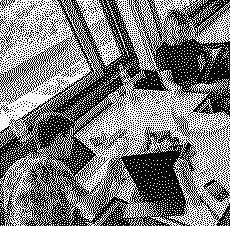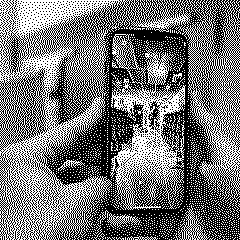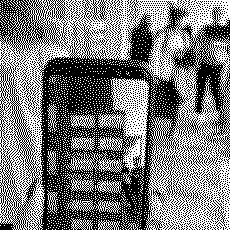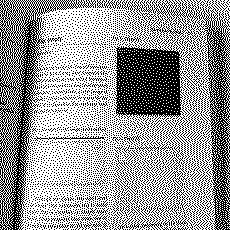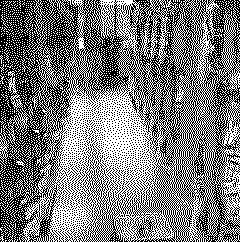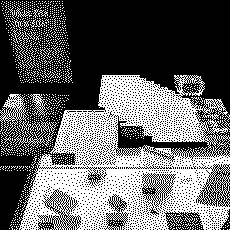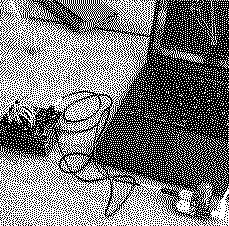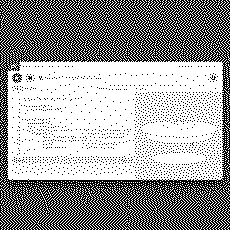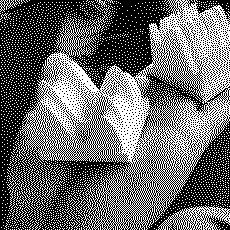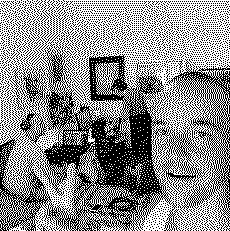Bio
Mace Ojala (nothing quite like writing about yourself in third person on the Internet) is a Software Studies scholar and cares about computer software as culture. Where does it come from, who maintains it, what is it, are there many softwares or only one, what’s fun about it… or is there anything special about software at all? To engage these questions Mace draws from science and technology studies, Philosophy and praxis.
When not thinking about those kinds of things, Mace likes to read academic literature diversely, ride the bicycle and listen attentively to synthesizers making sounds which have never existed before and might never exist again.
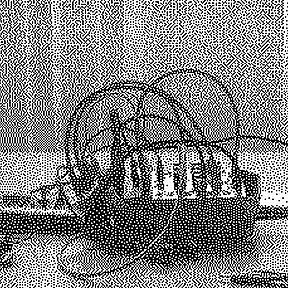
Education
- Doctor of Philosophy. Ruhr University Bochum, Virtuelle Lebenswelten collaborative research center (DfG SFB 1567). Started 2023 →
- Master of Science in Information Studies. Tampere University, Faculty of Information Technology and Communication Sciences. Graduated 2022.
- Bachelor of Science in Multidisciplinary Communication Studies, specialization in Information Studies. Tampere University, Faculty of Information Technology and Communication Sciences. Graduated 2020.
Employment
Currently at the Virtuelle Lebenswelten (DfG SFB 1567) at Ruhr University Bochum, earlier at the Institute for Media Studies.
Between 2016 and 2022 I was at IT University of Copenhagen mostly in the Technologies in Practice group, the ETHOS Lab and the Digital Design department, and at University of Copenhagen department of computer science.
I am proud to say that my first professional gig in academia in 2014 was at the European Humanities University of Minsk, in exile in Vilnius.
Publications
- Literaturverwaltung (2026). With Leman Çelik and Fabian Pittroff. In Virtuelle Universität. transcript Verlag.
- Datenausstellung (2026). With Raphaela Gilles, Carmen Reidelbach and Roman Smirnov. In Virtuelle Universität. transcript Verlag.
- Büro (2026). With Leman Çelik. In Virtuelle Universität. transcript Verlag.
- Feeling the worldly data centre: an ethnography based augmented reality experience (2025). With Estrid Sørensen, Jens Fahrenbacher, Sandra Abels and Stefan Laser. In Drift. Sink. Emerge. Repeat exhibition catalogue.
- Spaceships and Poetry: Enlivening the Lab as a Site of Feminist Critical Pedagogy (2024). With Rachel Douglas-Jones, Baki Cakici, Marisa Leavitt Cohn, Simy Kaur Gahoonia and Cæcilie Sloth Laursen. Engaging Science, Technology, and Society 10(1-2).
- Nordic Perspectives on Algorithmic Systems Card Box (2024). With Pedro Ferreira, Michael Hockenhull, Rebeca Blanco Cardozo, Matti Nelimarkka and Airi Lampinen. ACM Interactions 31(6).
- File, empty (2024). In Early Career Forum des SFB 1567 (ed.) Vokabular des Virtuellen. Ein situiertes Lexicon. transcript Verlag.
- Please Go Away… We’re Reading. A Practice Approach to a Taken-for-Granted Academic Craft (2024). With RUSTlab, Katrin Amelang, Ryoko Asai, Leman Çelik, Ruth Eggel, Olga Galanova, Stefan Laser, Fabian Pittroff, Estrid Sørensen and Lynn Werner. On_Culture 16.
- Software Maintenance as Materialization of Common Knowledge (2024). With Marisa Leavitt Cohn. Engaging Science, Technology, and Society 9(3).
- Medienpraxislehre in der Medienwissenschaft. Empirie und Exploration (2023). With Paul Heinicker, Armin Beverungen, Paul Hoffstiepel and Antonia Wulff. ZfM – Zeitschrift für Medienwissenschaft.
- Maintenance (2023). In James Maguire and Brit Ross Winthereik (eds.) Reclaiming Technology: A Poetic-scientific Vocabulary. Ctrl+Alt+Delete Books.
- The environmental footprint of social media hosting: Tinkering with Mastodon (2022). With Stefan Laser, Anne Pasek, Estrid Sørensen, Mél Hogan, Jens Fehrenbacher, Maximilian Gregor Hepach, Leman Çelik and Koushik Ravi Kumar. EASST Review Volume 41(3).
- Fieldnotes on FlyingLess Conferencing (2022). With Vanessa Ashall, Tobias Held, Stefan Laser, Julie Sascia Mewes, Nona Schulte-Roemer, Robert Smith, Richard Tutton and Sine Zambach. EASST Review.
- Data Sprint Learning: Exercising Proximity to Data in Teaching Situations (2022). With Laura Kocksch and Katharina Kinder-Kurlanda. Dígitos.
- Maintain-ability. A Thesis on Life Alongside Computer Software (2021). Tampere University. M.Sc. thesis.
- Absent Data: Engagements with absence in a Twitter collection (2021). With Katrine Meldgaard Kjær and Line Henriksen. Catalyst: Feminism, Theory, Technoscience. 7(2)
- Objektivitet (2021). With Line Henriksen and Katrine Meldgaard Kjær. In Irina Papazu and Brit Ross Winthereik (eds.) Aktørnetværksteori. I praksis. Djøf Forlag.
- Data Moment, Enacted (2020). Tampere University, B.Sc. thesis.
- Bestiary of Digital Monsters (2018). With Rachel Douglas-Jones, John Burnett, Marisa Cohn, Christian Gad, Michael Hockenhull, Bastian Jørgensen, James Maguire and Brit Ross Winthereik. In Living with Monsters?: Social Implications of Algorithmic Phenomena, Hybrid Agency, and the Performativity of Technology. Springer, p. 177-190 (IFIP AICT – Advances in Information and Communication technology, Vol. 543).
In press
- A critical code studies thing.
- A lab pedagogy thing.
Other formats
- “Münster writing” in the spirit of Henriksen, Meldgaard Kjær et al. 2021. A workshop at RUSTlab retreat, Münster (2025).
- Computer Care Day. A workshop at Ruhr University Bochum (2025).
- Background music for Helene Seewald’s Tabula Cebetis in VR. Das Greifen nach der Virtualität eines Kunstwerks (2025).
- Network thinking and Gephi workshop at Institute of Cultural Anthropology and European Ethnology, Goethe University, Frankfurt (2025).
- Augmented Reality data center, with Estrid Sørensen, Jens Fehrenbacher, Sandra Abels and Stefan Laser. An Augmented Reality experience at STS-Hub 2025, Berlin.
- Augmented Reality data center, with Estrid Sørensen, Jens Fehrenbacher, Sandra Abels and Stefan Laser. An Augmented Reality experience at Virtuelle Lebenswelten Jahrestagung 2024, Bochum.
- Augmented Reality data center, with Estrid Sørensen, Sandra Abels and Stefan Laser. An Augmented Reality experience at EASST/4S 2024, Amsterdam.
- Transforming data practices in the humanities: virtual research environments revisited. Panel at EASST/4S in Amsterdam (2024).
- What fits in a file? An exhibition at Ruhr University Bochum (2024).
- Software and the sonic subconscious of the digital. An Open Educational Resource (OER) on software studies and sound studies (2024).
- Creative programming in the wake of Modernism. An Open Educational Resource (OER) on creative programming with p5.js (2024).
- Database of Byzantine Book Epigrams, with the DBBE team at UGent and Ghent Centre for Digital Humanities (2023)
- Nordic Perspectives on Algorithmic Systems, with Airi Lampinen, Pedro Ferreira, Matti Nelimarkka, Michael Hockenhull, Jesse Haapoja, Marisa Cohn and Juho Pääkkönen. A card set developed at a workshop series to reconstruct and reimagine your automic existence (2022).
- DROP TABLE; Code poetry, essay and algorithmic image manipulation in Marisa Leavitt Cohn, Rachel Douglas-Jones and Merethe Riggelsen Gjørding (eds.). Breaking and making code poems (2022).
- Data Object, with Baki Cakici. A series of algorithmically generated 3D printed mementos for researchers visiting the ETHOS Lab.
- Hacker Cultures, with Paula Bialski, Andreas Bischof and Ariel Bialski. A podcast panel at EASST/4S 2020, EASST 2022 and EASST/4S 2024.
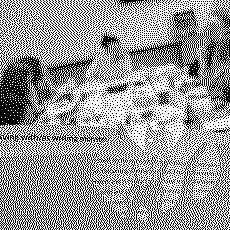
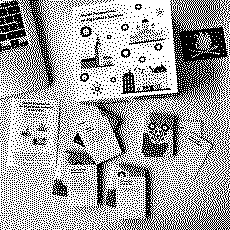
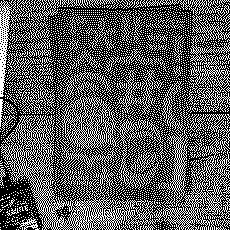
A selection of talks
- Software maintenance as materialization of common knowledge. Maintenance and Philosophy SIG of The Society for Philosophy and Technology, online, 2025.
- »If it looks like a signature…« A meditation on bodies and PDFs, with Tilman Richter. Medien|Denken. Bochum, 2025.
- Care, the computer, and us in virtual lifeworlds. Computer Care Day, Bochum, 2025.
- Wow, PDF is such an assemblage: Let’s talk about network like, rhizomatic and unstable aspects of the Portable Document Format. RUSTlab lecture serie, Bochum, 2025.
- Talks like an object, walks like an assemblage. Let’s talk about the PDF. STS Italia, Milano, 2025.
- If we disassemble our PDF files, will we find our hopes and dreams inside? Jahrestagung der Gesellschaft für Medienwissenschaft, Mainz, 2024.
- Machine listening and human listening, with Marja Ahti. Blaues Rauschen, Bochum, 2024.
- On becoming an infrastructure. Personas of participation and intervention, with Fabian Pittroff. Leakage, Dresden, 2024.
- Testing to circulate. Addressing the epistemic gaps of software testing, with Anja Klein, Libuše Hannah Vepřek, Sarah Thanner, Rebecca Carlson and Tamara Gupper. STS-hub.de, Aachen, 2023.
- Feminist ethos under data production pressures. EASST, Madrid, 2022.
- Blood, kin and code. Capturing social media data from Copenhagen. Big Data in Communication Research: A contextual turn? – An IAMCR pre-conference. with Qiuyu Jiang and Rachel Douglas-Jones, Beijing, 2022.
- Maintain-ability. On life alongside software. DASTS, Aarhus, 2022.
- Life alongside code. Processing Community Day, Aarhus, 2021.
- Experiencing collective accounts of “touch”. Analyzing software maintainers just speak. RUSTlab lecture serie, Bochum, 2020.
- Software maintenance as materialization of common knowledge. EASST/4S, Prague, 2020.
- “As is”. Patterns in Resistance, Copenhagen, 2018.
Projects
I’ve worked on a bunch of projects (haven’t we all?), such as medienpraxiswissen, GIFT which was a Horizon 2020 funded design project for museums, Data as Relation about well, what the name says, Mapping a Colony exploring the colonial relations between the US Virgin Islands and Denmark, and importantly research into software maintenance with Marisa Cohn.
Teaching
2022 to 2026 at Ruhr University Bochum
- Digitale Choreographien
- Digitale Methoden und kritische Datenforschung
- Software and the sonic subconsciousness of the digital
- Programmieren für Medienwissenschaftler*innen
- Nachhaltigkeit und kritische Datenforschung
2024 to 2026 at Paderborn University
- Let’s make pixels, algos and interactions
2021 to 2025 at University of Klagenfurt
- A data sprint for PhD, Master and Bachelor students.
2017 to 2022 at University of Copenhagen
- Advanced Empirical Methods and Theory of Science
- Design Project
- Analysis, Design and Regulation of IT Infrastructure
2017 to 2022 at IT University of Copenhagen
- Data Design
- Computational Literacies
- Navigating Complexity
- Network Society
- Programming and Data Processing
- Big Data Analysis
- Frameworks and Architectures for the Web
- Digital Management, Governance and Accountability
2019 at The Royal Academy of Fine Arts, Copenhagen
- Patterns of Resistance, with Laboratory of Aesthetics and Ecology.
